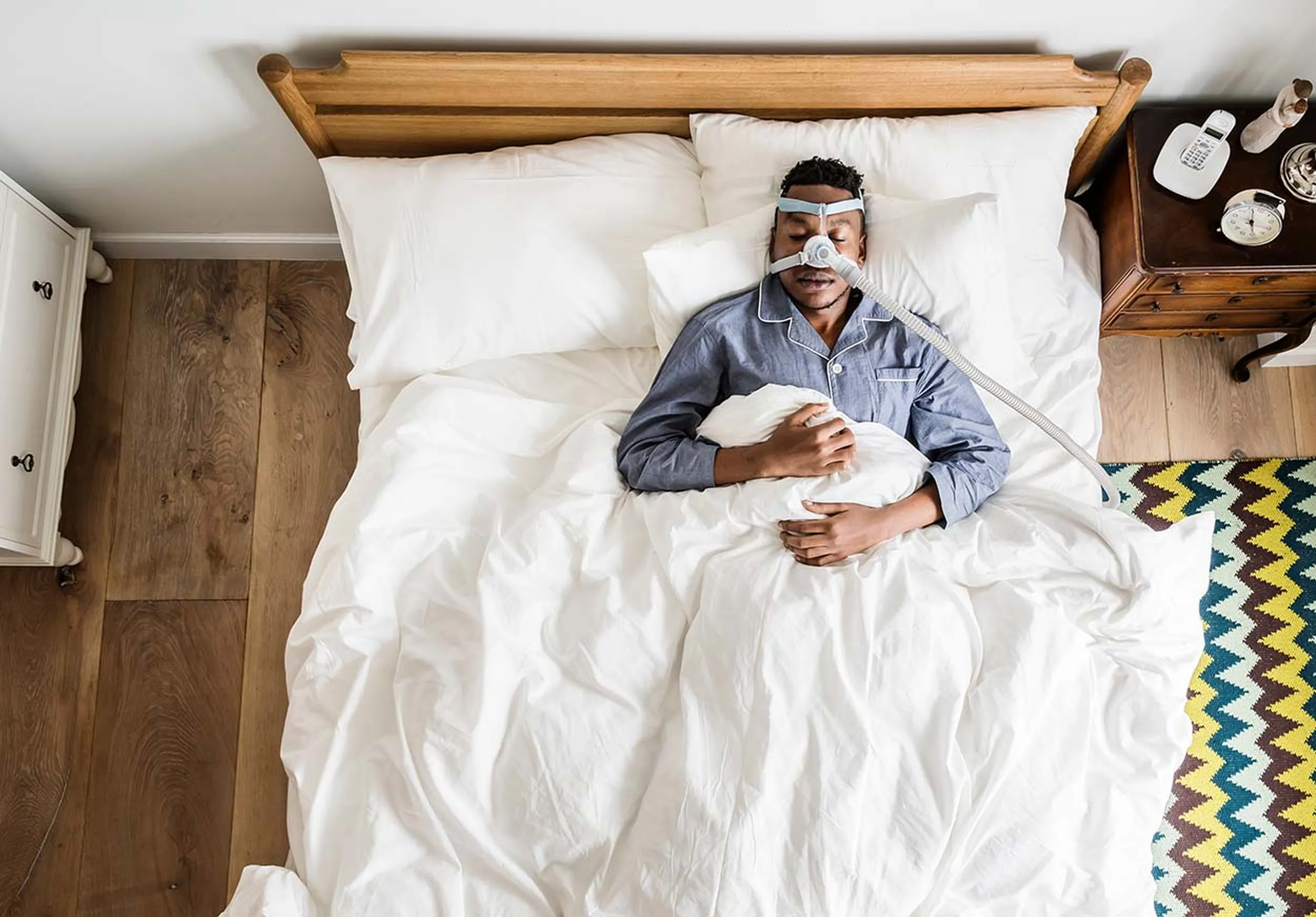Sleep apnea: what is it?
When sleep apnea occurs frequently and lasts a long time, it poses a health problem. Have you ever heard of sleep apnea but don't know exactly what it is? In the following article, you will find out exactly what it is, what the causes may be, what the symptoms are, and how it can be treated.

Definition of sleep apnea
Everyone experiences sleep apnea during their sleep at some point. But what exactly is sleep apnea? Sleep apnea is a short cessation of breathing lasting at least 10 seconds. Our body recognizes such a pause in breathing and sends a signal to the brain so that the body wakes up and starts breathing again. When sleep apnea occurs frequently and in abundance, this sleep disorder can lead to troublesome consequences. When someone experiences 10 to 15 apneas per hour, it is referred to as sleep apnea syndrome.Types of sleep apnea
There are 3 types of sleep apnea:
- Obstructive Sleep Apnea Syndrome (OSAS) This is where there is an obstruction in the airway, causing increased resistance to breathing.
- Central Sleep Apnea Syndrome (CSAS). In this variant, the brain fails to send impulses to the respiratory muscles.
- Combination of OSAS and CSAS. In this case, both causes are present.
Symptoms of sleep apnea
There are a number of symptoms by which you can recognize sleep apnea syndrome:
- Startled awake
- Heavy snoring
- Having to go to the bathroom frequently at night
- Morning headache
- Dry throat upon waking
- Daytime sleepiness
- Night sweats
Causes of sleep apnea
As previously mentioned, OSAS and CSAS have different causes. There are several factors that increase the risk of sleep apnea:
- Overweight
- High alcohol consumption
- Use of sleep aids and sedatives
- Smoking
- Sleeping on the back
- Enlarged tonsils or enlarged uvula
- Nasal congestion
- Hormonal and metabolic disorders
- Genetic predisposition
Medical consequences of sleep apnea
Sleep apnea is an annoying sleep disorder and therefore has a number of negative consequences
- Drowsiness: too short periods of sleep cause fatigue, concentration problems, and sometimes memory loss during the day. The risk of traffic accidents is also higher as a result.
- Oxygen deficiency: this will cause vital organs in the body to function less effectively.
- Heart and vascular diseases it is a risk factor for increased blood pressure, arrhythmias, heart diseases, heart attacks, or stroke
Treating sleep apnea
Nasal mask/CPAP
The most commonly used treatment for people with sleep apnea is CPAP (continuous positive airway pressure). This sleep mask is connected to a compressor that blows extra air into the nose and throat.st.
Mouth device/MAD
Another treatment for mild sleep apnea (and for heavy snoring) is the use of a mouth device, also known as a mandibular advancement device (MAD). This device is slid over your teeth, causing the lower jaw to remain forward while sleeping.
Surgical treatment
In some cases, a surgical treatment is applied for sleep apnea. There are two different techniques involved:
- UPPP (uvulopalatopharyngoplasty), where the uvula, tonsillar pillars and part of the throat mucosa wall are removed. This treatment usually has more impact on snoring and less on sleep apnea.
- MMA (maxillomandibular advancement osteotomy), in this procedure the upper and lower jaws are moved forward. This shift creates a wider opening of the throat, making it more difficult to collapse during sleep.
